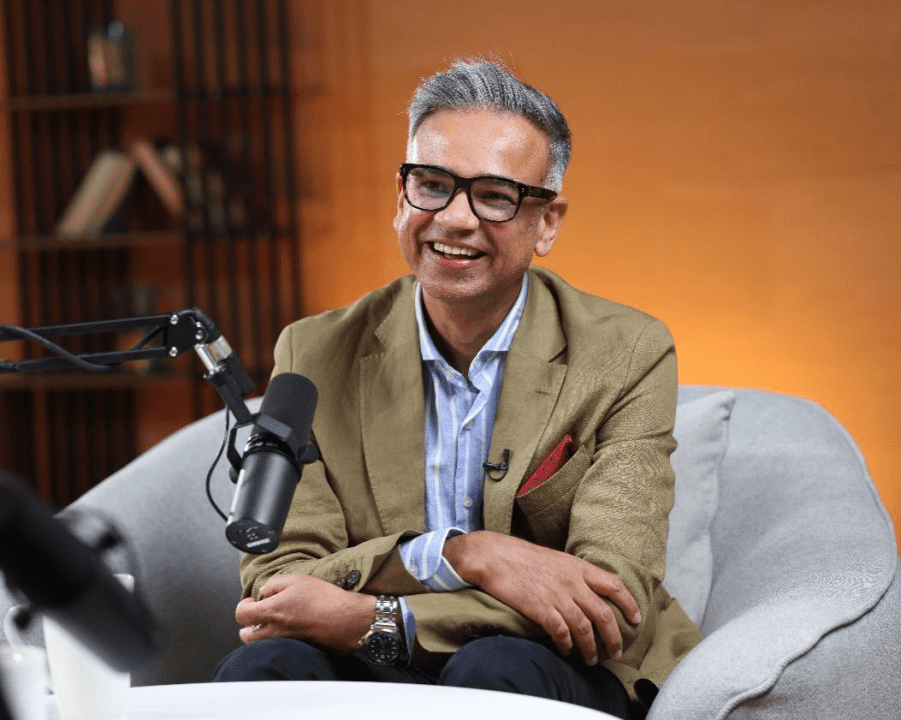Interview with Dr. Omendra Narayan, Associate Professor Dr. Omendra (Omi) Narayan is a Consultant Paediatric Pulmonologist, UK board-certified with dual CCT in Pediatrics and pediatric pulmonology. He has worked in several of the UK’s most premier and advanced pediatric pulmonology units. Prior to relocating to Dubai, Dr. Narayan was a consultant respiratory pediatrician at the Royal Manchester Children’s Hospital.
Dr. Omendra was also an Associate Dean and Honorary Senior Lecturer at the University of Manchester Medical School and a Quality Advisor for the College Speciality Advisory Committee (CSAC) for the Royal College of Paediatrics and Child Health (RCPCH).
Dr. Omendra relocated to American Hospital Dubai in July 2021 to set up a new pediatric pulmonology service. He is a director of the American Children’s Centre, a pediatric specialist facility within American Hospital Dubai. It was great to catch up with Dr. Omi during his busy schedule to find out about his experiences and achievements since moving to Dubai.
Can you start by telling us about your background and specialist training in the UK?
Sure, I grew up in India and completed my undergraduate medical training at Grant Medical College in Mumbai, one of the most prestigious and highly competitive medical education and research institutions in India. I received great training and experience working in very busy hospitals serving an extremely large patient population from Mumbai and the surrounding regions.
Following my graduation in 2001, I went on to do specialist training in pediatrics, also in Mumbai. Then, I went to the UK for my specialist training in 2003. This required me to first complete the foundation year training, which I did in the Birmingham and West Midlands regions. Then, I was accepted into the pediatric specialist rotation in London.
I received excellent training at hospitals, including Guy’s and St. Thomas’, Great Ormond Street, and Evelina Children’s Hospital. Then, I applied for my subspecialty (National Grid) training in pediatric respiratory medicine and was accepted at Birmingham Children’s Hospital. Entrance to pediatric subspecialty training is very competitive, as there are a limited number of training posts within the UK’s NHS children’s hospitals.
Upon completion of my subspecialty fellowship, I was a locum consultant in pediatric respiratory medicine in Birmingham before accepting a permanent consultant post at the Royal Manchester Children’s Hospital.
The Royal Manchester is the largest children’s hospital in Europe and a quaternary care center for a full range of pediatric specialties. In Manchester, I contributed to expanding the very busy pediatric respiratory medicine department, and I led the bronchoscopy, sleep, and long-term ventilation services.
I also taught undergraduates and postgraduates. After that, I was an Associate Hospital Dean & Honorary Senior Lecturer for Manchester Medical School. I was also appointed as an advisor for the College Speciality Advisory Committee (CSAC) for RCPCH. In this role, I was part of a committee involved in interviewing and selecting subspecialty trainees and supporting different hospitals for pediatric respiratory medicine training.
What motivated you to specialize in pediatric pulmonology?
Firstly, I chose pediatrics because I love children. While I was a medical student in Mumbai, I volunteered at an orphanage on weekends and also with a Rotary Club children’s charity. This involved projects to promote health and well-being for children living in slum housing areas in Mumbai, such as deworming projects and other activities. This experience, in addition to my medical training, helped me recognize the importance and value of working with children and their families.
It is rewarding to be able to gain the trust of children who are initially anxious or scared about coming to the hospital. When interacting with children, we find ways to make things fun, such as by playing games or talking about their favorite cartoons. It can be stressful at times when children are critically ill, but we are able to support children and their families through these difficult times.
For my subspecialty, I was initially deciding between pediatric respiratory or cardiovascular. During my pediatric rotation, I enjoyed my training in respiratory medicine and found that it provides a good mix of outpatient clinics, ward work, intensive care, and interventional pulmonology procedures. I specialise in diagnosing and treating complex respiratory conditions and sleep disorders in children, as well as seeing children with more routine asthma.
Can you tell us a bit more about the Children’s Center at American Hospital?
The American Children’s Center is a leading pediatric healthcare facility in Dubai. Located within American Hospital Dubai, it offers a full range of paediatric subspecialties in a child-friendly environment. It opened in November 2022 with several pediatric consultants, but now there are 45 consultants from various pediatric subspecialties, and it is still expanding. It is great to work with the dedicated team of pediatric specialists at the American Children’s Center to provide comprehensive, family-centered care for children from newborns to adolescents.
How have you found the experience of working in Dubai?
My clinical work is almost the same as in the UK, but, of course, there are some differences in the health system and setup. Relocating from working in the NHS in the UK required some adaptation, such as learning about the medical insurance system here. I
It took some time to build up our team and provide training for staff so that we could all work effectively together to provide the best care for our patients, and we are still expanding. In the initial stages, I had to be flexible, and I would see some general paediatric patients while building up my subspecialty here.
In Dubai’s healthcare system, patients have a lot of choices, and it is necessary to create awareness of your particular expertise. I have found that the best way is by word of mouth. As you build trust with patients and their families, they will tell others. It is also important to network with other specialties for referrals, and the hospital also has a great media and marketing department.
Soon, I became very busy, and we had to bring in a second consultant as my waiting list had built up. The hospital management has been very supportive. There is less red tape here and a greater openness to new ideas, making it easier to start a new service.
For example, American Hospital has a new clinic in Dubai Hills Mall, in a different area of Dubai. I go there one day a week, and other specialists are also doing the same. This has been very successful, as it offers convenience and easier travel for those living on that side of Dubai for simple consultations or follow-ups not requiring complex hospital investigations or treatment. Dubai is also a hub for medical tourism, and we see many international patients from the Middle East, Africa, South Asia, Russia, China, and other places.
Are you able to continue your teaching and training roles in Dubai?
Yes, at American Hospital, we have medical students from Sharjah and Gulf Medical Universities, as well as pediatric residents in training. I have been appointed as an honorary associate professor at the University of Sharjah & Gulf Medical University.
The Dubai Health Authority (DHA) residency program started last year, and residents are able to complete their full rotation of different subspecialties within American Hospital Dubai. There are plans to start a fellowship in the neonatal ICU in the future.
I enjoy sharing my clinical knowledge and experience with medical students and residents. There are exciting plans for the future, as American Hospital is exploring an opportunity to start a new medical school in Dubai in partnership with one of the top US medical colleges.
What about research projects here?
While I have been very busy clinically, there are still opportunities to get involved in research. We are currently collaborating with other pediatric neurologists in Dubai on a research project analysing outcome data for a new gene therapy for a rare genetic neuromuscular disorder, SMA (Spinal Muscular Atrophy).
This is currently the largest project of its kind, involving 120 SMA patients from many different countries. Without treatment, SMA is fatal for 90% of patients, and previous treatments have only been able to manage symptoms and prevent complications. This new gene therapy is showing very promising results at the American Hospital, and the paper is currently undergoing peer review before publication.
Similar gene therapies may be developed for other conditions, such as Duchene muscular dystrophy (DMD), which has also already started and is making a huge impact on these patients.
How has the relocation experience been for your family?
They also love it here. We live in accommodation provided by the hospital in a nice area of Dubai, near the beach. My wife is also working here, and we have a great community and enjoy the lifestyle. Our two children are very happy and have been enjoying a lot of outdoor activities. They are in a British-curriculum international school, which they love, and have made lots of friends.
Dubai is a great place that offers the best of different cultures from around the world, and you can find everything here. I have been able to continue my hobbies of cycling and photography. It is also easy to travel to India to visit my parents or for our family to visit us here. Dubai is a well-connected travel hub, and we have been taking the opportunity to explore different countries in Asia on holidays.
Do you have any advice for other consultants thinking of making a similar move?
Dubai is an amazing place to live and work. There is vibrancy and positivity here, and you keep discovering new things when you live here. The healthcare system may be different from where you are currently working, and hospitals and expectations can vary, so it is important to do your research and visit before making a decision. If you come with an open mind, a flexible attitude, and a willingness to adapt, you can be very successful here.
Check Latest Vacancies:



